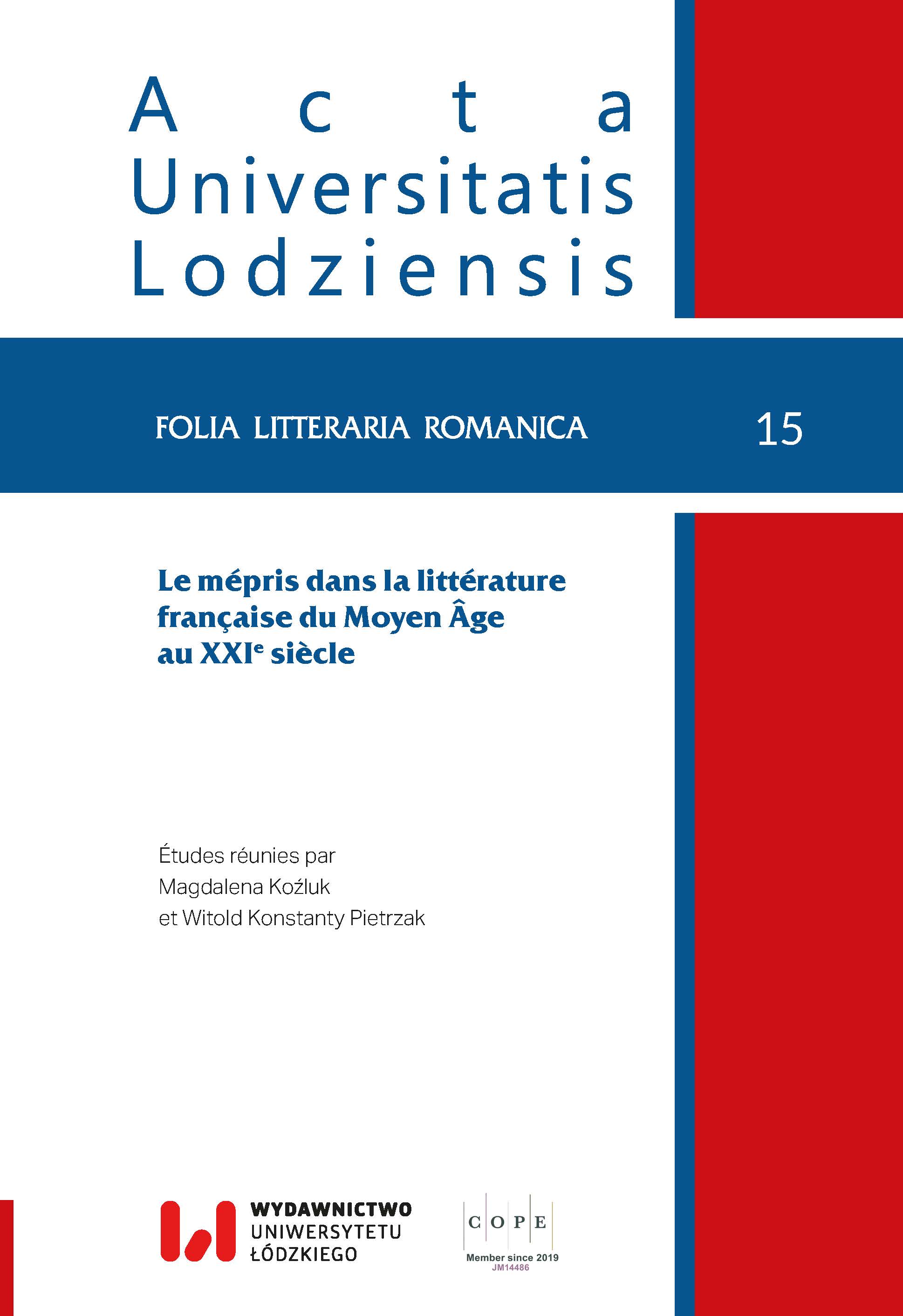« Aimer religieusement le monde et la vie » : la réponse de Pierre Leroux au contemptus mundi
DOI :
https://doi.org/10.18778/1505-9065.15.11Mots-clés :
Pierre Leroux, romantisme, contemptus mundi, religion, philosophie de la vie, philosophie comme manière de vivre, souverain bienRésumé
Dans son ouvrage De l’humanité, de son principe et de son avenir (1840), Pierre Leroux cherche à établir la « vraie définition de la religion », en visant à une synthèse des traditions religieuses de l’humanité et de la philosophie moderne. Aucune des réponses philosophiques que l’homme a tenté jusqu’ici de donner à la question du bonheur et du souverain bien (stoïcisme, épicuréisme, platonisme, christianisme) ne peut être jugée comme satisfaisante. Entre matérialisme qui méprise l’esprit d’un côté et spiritualisme qui méprise la nature et le monde de l’autre, Leroux cherche une troisième voie : « Aimer religieusement le monde et la vie ». Sa philosophie, qui est à la fois une manière de vivre et une réflexion herméneutique sur l’humanité, conduit à l’application véritable et socialement organisée du principe de l’amour, et dépassant égoïsme et altruisme dans la solidarité, permet de libérer la nature et la vie du mépris qui pesait sur elles pendant des siècles.
Téléchargements
Références
Anthologie de Pierre Leroux, inventeur du socialisme, établie et présentée par Bruno Viard, Lormont, Éditions Le Bord de l’eau, 2007
Google Scholar
Alexandrian, Sarane, Le Socialisme romantique, Paris, Éditions du Seuil, 1979
Google Scholar
Bénichou, Paul, Le Temps des prophètes. Doctrines de l’âge romantique, Paris, Gallimard, 1977
Google Scholar
Boileau Nicolas, Œuvres poétiques, Paris, Firmin Didot frères, 1853 ; URL : https://gallica.bnf.fr/ark:/12148/bpt6k5442473z consulté le 16.01.2019
Google Scholar
Bultot, Robert, « Mépris du monde, misère et dignité de l’homme, dans la pensée d’Innocent III », Cahiers de civilisation médiévale, octobre-décembre 1961, 4e année, n° 16, p. 441-456, URL : https://www.persee.fr/doc/ccmed_0007-9731_1961_num_4_16_1205 consulté le 10.01.2019 https://doi.org/10.3406/ccmed.1961.1205
Google Scholar
DOI: https://doi.org/10.3406/ccmed.1961.1205
Domański, Juliusz, La Philosophie, théorie ou manière de vivre ? Les controverses de l’antiquité à la renaissance, préface de P. Hadot, Fribourg, Éditions universitaires Fribourg Suisse / Paris, Éditions du Cerf, 1996
Google Scholar
Domański, Juliusz, Z dawnych rozważań o marności i pogardzie świata oraz nędzy i godności człowieka, Warszawa, Wydawnictwo IfiS PAN, 1997
Google Scholar
Evans, David Owen, Le Socialisme romantique : Pierre Leroux et ses contemporains, Paris, M. Rivière, 1948
Google Scholar
Gusdorf, Georges, Les Origines de l’herméneutique, Payot, Paris 1988
Google Scholar
Hadot, Pierre, Qu’est-ce que la philosophie antique ?, Paris, Gallimard, 1995
Google Scholar
Hadot, Pierre, La Philosophie comme manière de vivre, entretiens avec Jeannie Carlier et Arnold Davidson, Paris, Éditions Albin Michel, 2001
Google Scholar
Houellebecq, Michel, H. P. Lovecraft. Contre le monde, contre la vie, Monaco / Paris, Éditions du Rocher, 1991
Google Scholar
Leroux, Pierre, De l’humanité, de son principe et de son avenir, t. 1, Paris, Perrotin, 1845 ; URL : http://gallica.bnf.fr/ark:/12148/bpt6k454802b consulté le 10.01.2019
Google Scholar
Montaigne, Michel de, Essais, édition présentée, établie et annotée par Pierre Michel, t. 3, Paris, Gallimard, 1965
Google Scholar
Nietzsche, Friedrich, Ainsi parlait Zarathoustra, Paris, Éditions Gallimard, 1947
Google Scholar
Viard, Bruno, Pierre Leroux, penseur de l’humanité, Cabris, Éditions Sulliver, 2009
Google Scholar
Téléchargements
Publiée
Comment citer
Numéro
Rubrique
Licence

Ce travail est disponible sous licence Creative Commons Attribution - Pas d'Utilisation Commerciale - Pas de Modification 4.0 International.











